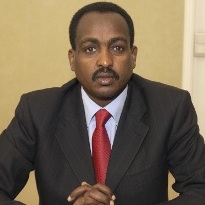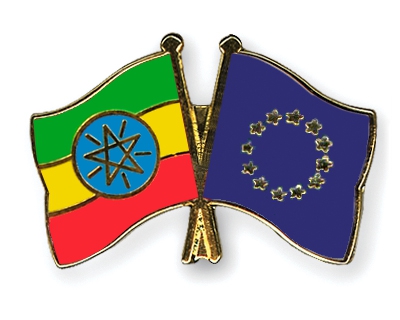
By Teshome Toga, Ambassador Extraordinary and Plenipotentiary of the Federal Democratic Republic of Ethiopia to the Benelux and Baltic countries and to the European Union
In an opinion piece published on 6 October 2016 on the EU Observer, Felix Horne, Ethiopia researcher at Human Rights Watch, said the European Union (EU) needs to adopt a new approach to Ethiopia, referring to the protests that have taken place in some part of the country in recent months. According to him, the EU has to use its role of main cooperation partner to “push Ethiopia” to accept an international investigation and take several measures, including respect of divergent views and bringing security forces to justice in case of illegitimate use of force. This would, according to Mr. Horne, ultimately ensure the country remains a stable partner of the EU on the long term.
However, this suggestion is off-topic. It assumes EU-Ethiopia cooperation is a unilateral donor-recipient relationship whereas it is based on mutual interest and respect. Both parties know how to govern their relations. The EU is a very important partner of Ethiopia and a constructive dialogue mechanism has been established.
Moreover, any imposed international investigation would be unacceptable. As Prime Minister Hailemariam Desalegn recently said, Ethiopia is a sovereign and independent country and it has its internal institutional mechanism for investigation and accountability. Bypassing the institutional mechanisms would undermine and discredit the constitutional obligations of the government. The Ethiopian government, by the pertinent constitutional institution, will carry out its own investigation and rectify any shortcomings.
When the Federal Democratic Republic was established in 1991, Ethiopia started working on democratic and human rights issues not because it was pushed from outside through financial or other incentives, but because its people and government firmly believed it is the only way for Ethiopia to accommodate the multiple identities and diversities in the country and to achieve prosperity and stability. More fundamentally, as Prime Minister Hailemariam put it, these values are central for the very “survival” of the country which is made out of more than eighty nations and nationalities.
Implementing these values is not an easy task. Especially when the country’s democratic history is a very young one. The government has to find a balance between maintaining law and order and delivering genuine solutions to people’s demands including lack of effective good governance and unemployment challenges. The Prime Minister has not been shy of speaking out, and said addressing these challenges is a matter “life or death”.
Much work has been done, among others through a progressive Constitution by protecting rights of individuals and groups. Moreover, the government has addressed the legitimate demands and launched deep renewal to address these challenges with the inclusive and full participation of Ethiopians from all walks of life. In the wake of the initial protests in some parts of the Oromia regional states, the regional government decided to shelve the Addis Ababa master plan. This unprecedented government compromise was praised by many. Similarly, the protest in the Amhara regional state related to identity issue of the Qimant community has been resolved using the constitutional laid procedure.
To assess the cause of loss of life which occurred in the first wave of unrest that started in the two regional states in November 2015, the Ethiopian Human Rights Commission has made an independent inquiry presented to the national Parliament. It conclusions were that, though measures taken by the law enforcement agents and the federal police to control the situation were proportionate, in some specific cases security forces used excessive force to control the violence. The Government said it will make sure that those responsible for violence or illegal acts during the protests, or who were responsible for any undue use of force, will be brought to justice.
But the enquiry also pointed out violent groups inside and outside the country, especially extremists in the diaspora, took part in the protests, hijacking legitimate demands by propagating hate speeches through social media. The repeated involvement in protests of several groups trying to undermine and ultimately overthrow the legitimate government of the country through violence has since then become even more obvious as it led to destruction of foreign investments, public and private properties and attacks on police forces as reported in international media. This shows the complexity of the situation the government and security forces face.
In the last twenty-five years, the country has made tremendous progress in the economy, infrastructure, access to health and education among others. It can now legitimately assume to become a middle-income country by 2025. This was confirmed by a 2010 independent survey of people’s attitude that revealed that 50 percent of the population believe they were better off in 2010 than in 2005 and three quarters expected this improvement to continue in the future.
Alongside these developments, new challenges have arisen related to access to jobs for young graduates, and lack of efficient and effective good governance. The Ethiopian government is determined to address them in effective ways. Extensive engagement with the public and different sectors of the society after the recent unrest have led the government to improve and reorganize government bodies and structures to make them more effective and responsive and to ensure transparency and accountability.
The European Union has been a key ally to alleviating poverty and improving the population’s well-being. In this context, the EU is more important than ever to Ethiopia as a partner, and its role has increased during the past years following a set of high-level political consultations. After significant milestones such as the Common Agenda on Migration and Mobility in November 2015 and the establishment of a friendship group within the European Parliament in March 2016, H.E. Prime minister Hailemariam Desalegn of the Federal Democratic Republic of Ethiopia and H.E Jean-Claude Junker, European Commission President signed an Ethiopia-EU strategic engagement document in Brussels on 14 June 2016 aiming at structuring the reinforced cooperation between the two partners. Ethiopia values the partnership with the European Union helping the country to address its developmental issues and to face its internal challenges constructively. The European Union is also keen to intensify its partnership with Ethiopia as stated by an inter-service EU Commission delegation currently visiting the country.




